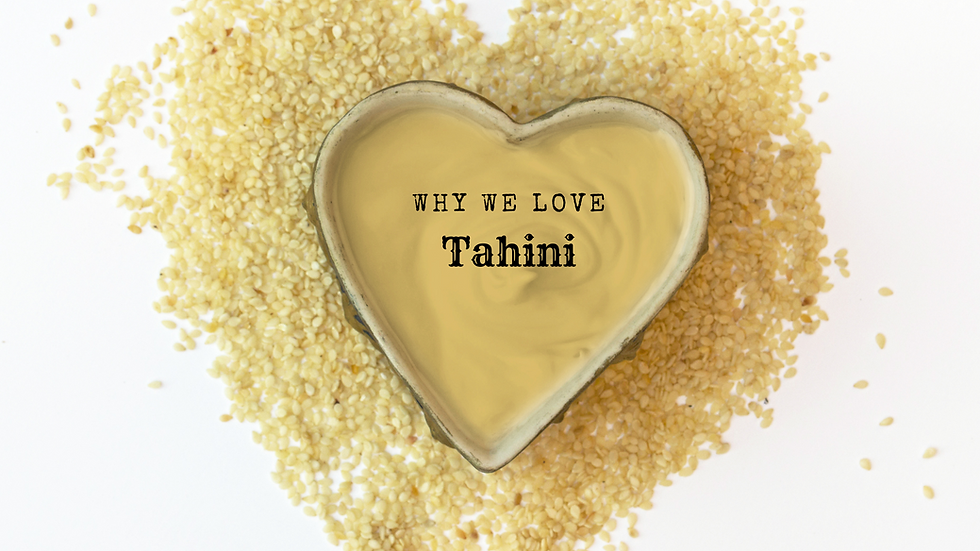5 Herbs for Gut Health
- Jennifer Heard

- May 24, 2023
- 4 min read
The human gut is often referred to as our second brain; it plays a significant role in our overall health and well-being. A healthy gut is essential for proper digestion, absorption of nutrients, and elimination of waste. Factors such as poor diet, stress, and antibiotics can disrupt the delicate balance of the gut microbiome, leading to a range of digestive issues that can exacerbate autoimmune conditions already present. Fortunately, nature provides us with a variety of herbs that can help promote gut health. While all edible plants have beneficial properties let’s explore the 5 best herbs for gut health and how they can benefit your digestive system.
Gut Health and the Action of Herbs
The gut, also known as the gastrointestinal tract, is a complex system that includes the mouth, esophagus, stomach, small intestine, large intestine, rectum, and anus. It is home to trillions of microorganisms, collectively known as the gut microbiota, that play a crucial role in maintaining our health. The gut microbiota helps digest food, produce vitamins, regulate the immune system, and protect against harmful pathogens.
When the gut microbiota is disrupted, it can lead to a condition called dysbiosis, which is associated with a range of digestive disorders such as irritable bowel syndrome (IBS), inflammatory bowel disease (IBD), and leaky gut syndrome. Symptoms of gut dysbiosis may include bloating, gas, constipation, diarrhea, and abdominal pain.
Herbs contain bioactive compounds such as polyphenols, flavonoids, and terpenes that have anti-inflammatory, antioxidant, and antimicrobial properties. Many herbs promote gut health and help to alleviate symptoms of digestive disorders by supporting the growth and diversity of beneficial gut bacteria. This is important because a healthy gut microbiota is essential for proper digestion and absorption of nutrients.


Fennel
Fennel is a flowering plant that is native to the Mediterranean region. It has a licorice-like flavor and is often used in cooking. Fennel contains compounds such as anethole and fenchone that have anti-inflammatory and antimicrobial properties which can help to alleviate symptoms of digestive disorders such as bloating, gas, and constipation. A study published in the Journal of Agricultural and Food Chemistry found that fennel contains compounds that can inhibit the growth of harmful bacteria such as Escherichia coli (E. coli) and Salmonella. Fennel can be consumed as a tea, added to soups and stews, or used as a seasoning for meats and vegetables.

Ginger
Ginger is a rhizome that is widely used in cooking and traditional medicine. It contains compounds such as gingerols and shogaols that have anti-inflammatory and antioxidant properties. A study published in the Journal of Ethnopharmacology found that ginger can increase the production of digestive enzymes and improve gut motility; thus calming the stomach, helping to reduce nausea, vomiting, and other symptoms of digestive disorders. It can be consumed as a tea, added to stir-fries and soups, or used in baking.

Peppermint
Peppermint is a hybrid of watermint and spearmint that is commonly used in cooking and herbal medicine. It contains menthol, a compound that has antispasmodic and analgesic properties. It has been extensively studied for its effects on gut health. A review published in the Journal of Clinical Gastroenterology found that peppermint oil can reduce symptoms of IBS, including abdominal pain and bloating. It can be consumed as tea, added to smoothies and salads, or used as a flavoring for desserts.

Chamomile
Chamomile is a daisy like flower that has been studied for, and is often consumed as an anti-anxiety tea. BUT did you know that it contains compounds such as chamazulene and apigenin that have anti-inflammatory and antioxidant properties making it a gut healthy herb. A study published in the Journal of Gastroenterology found that chamomile can reduce inflammation in the gut and improve symptoms of IBD. We all know it can be consumed as tea, but the flowers are also edible and make a great addition to salads and soups or used as a flavoring for desserts.

Turmeric
Turmeric is a spice that is commonly used in Indian and Middle Eastern cuisine. It contains curcumin, a compound that has potent anti-inflammatory and antioxidant properties. A study published in the Journal of Medicinal Food found that curcumin can reduce inflammation in the gut and improve symptoms of IBD. It can be added to soups, smoothies, used as a seasoning for meats and vegetables, or consumed as a tea.
Precautions to Take When Using Herbs for Gut Health
While herbs can be a safe and effective way to promote gut health, there are some precautions to take when using them. Here are some things to keep in mind:
Always talk to your healthcare provider before using herbs, especially if you are pregnant, breastfeeding, or taking medications.
Start with small doses and gradually increase as tolerated.
Avoid using herbs in large amounts or for prolonged periods of time.
Be aware of potential side effects and interactions with other medications.
Choose high-quality herbs from reputable sources.
Conclusion and Final Thoughts on the Power of Plants for Gut Health
The gut is a complex system that plays a crucial role in our overall health and well-being. Maintaining a healthy gut is essential for proper digestion, absorption of nutrients, and elimination of waste. Herbs such as fennel, ginger, peppermint, chamomile, and turmeric have been shown to have significant benefits for gut health. They can help to alleviate symptoms of digestive disorders, promote the growth of beneficial gut bacteria, and reduce inflammation in the gut. By incorporating these herbs into your diet and taking precautions when using them, you can harness the power of plants for optimal gut health.
Start incorporating these five herbs into your diet today and experience the benefits of a healthy gut. Remember to always consult with your healthcare provider before starting any new supplement or treatment regimen.
Need more guidance? Talk to one of our Featured Practitioners to help you create and maintain a healthy gut!




Comments